Mehr [als] Wohnraum!
Konferenz am 6. Juli 2016
Building is teamwork! Building works best if it takes place as a common act. On a building site everyone must rely on each other. The one who builds, does changes. And the one who catches that spirit of change will become an active member in the society.

Mehr [als] Wohnraum!
Bauen ist Teamarbeit! Bauen geht am besten zusammen. Auf einer Baustelle muss sich jeder aufeinander verlassen können. Wer baut, verändert. Und wer weiss, dass er etwas verändern kann, wird zum Mitspieler in einer aktiven Gesellschaft. Gedanken, auf die sich wohl beinah alle TeilnehmerInnen der eintägigen Konferenz rund um den Oberhausener Hauptbahnhof einigen konnten: Unter dem Titel „Mehr (als) Wohnraum! Bauen als Beitrag zur Integration sozial Benachteiligter“ widmeten sich rund 100 ArchitektInnen, PlanerInnen, KünstlerInnen und viele weitere Gäste auf Einladung von StadtBauKultur NRW und kitev der aktuellen Wohnungsfrage.
In den letzten Monaten ist drastisch deutlich geworden: Deutschland hat ein Problem. Zu lange haben viele Städte den sozialen Wohnungsbau schleifen lassen. In einer Zeit, in der Deutschland boomt und die Bevölkerungszahlen wachsen, Lohnniveaus und Aufenthaltsstatus jedoch prekär bleiben oder zunehmend werden, braucht es dringend bezahlbaren Wohnraum. Und in der Tat wird aktuell im großen Stil auf die Schieflage reagiert und Wohnungsbauprogramme aufgelegt.
In Oberhausen fragte man sich nach dem Wie. Ist es genug, günstigen Wohnraum zur Verfügung zu stellen oder muss man das Wohnen als wesentliches Werkzeug zur Selbstermächtigung und Gestaltung gesellschaftlicher Prozesse verstehen? In fünf Vorträgen stellten Projektmacher aus Deutschland und Österreich exemplarische kollaborative Bauprojekte vor, die auf Beteiligung, Austausch und nachhaltige Veränderung von gesellschaftlichen Strukturen setzen. Vom integrierten Wohnen mit Selbstbeteiligung am Bau von Studierenden und Obdachlosen in Wien, über ein Garten-, Gasthaus-, Wohn- und Kulturprojekt mit Geflüchteten in Berlin, einen von Kindern geplanten Begegnungsort in dem benachteiligten Düsseldorfer Vorort Garath, Dörfer in leerstehenden Industriehallen bis zur Vision einer ganzen selbstgebauten Stadt: hier wurden realisierte und vorgestellte Zukunftsszenarien gleichermaßen zu Möglichkeiten einer kommenden Gesellschaft.
In Workshops am Nachmittag wurde es dann praktisch – und mit kitev auch ortsspezifisch. Unter dem Titel „Hands on, Co-Create! Wir reparieren ein Hochhaus. Gemeinschaftliche Bauprozesse in der Praxis“ eröffnete im bis vor Kurzem ungenutzten Ladenlokal des Hochhauses an der Friedrich-Karl-Strasse eine Ideenwerkstatt. Was könnte dieses Haus sein für Oberhausen, mit seiner Strahlkraft in die gesamte Stadt hinein? Wie kann dieser Ort zum lebendigen Organismus werden, in dem eine heterogene Bevölkerung sich bewegt und gemeinsam Modelle von Zusammenleben entwickeln kann?
Der Workshop setzte den öffentlichen Startpunkt für eine Langzeitprojekt im Haus, das kitev in Kooperation mit der Eigentümerin Vonovia unlängst begonnen hat. Im Ladenlokal entsteht bereits eine Werkstatt. Und Christoph Stark und Agnieszka Wnuczak haben bereits begonnen, gemeinsam mit dem jungen Mohammad Sayed Hashemi dessen zukünftige Wohnung zu renovieren, bevor sie bald selbst eine Wohnung in der Immobilie beziehen werden. „Uns ist das ganz wichtig, hier zum Teil der Struktur zu werden. Wir bilden hier ein Modell für die langfristige Veränderung von Wohnstrukturen und damit der Funktionsweise von Städten. Das Hochhaus verstehen wir als eine exemplarische Situation – nicht nur für die Oberhausener Innenstadt, sondern für urbane Prozesse im gesamten Ruhrgebiet. Die Entwicklung einer gemeinschaftlichen Nutzungs- und Beschäftigungsstruktur im Hochhaus kann ausstrahlen auf die Umgebung und auch an Konzepten arbeiten für eine starke Innenstadt, die nicht primär auf einem starken Einzelhandel basiert. Das kann als best practice in das weitere Umfeld übertragen werden. Damit steht das Langzeitprojekt auch in einer Tradition mit historischen aktiven Oberhausener Nachbarschaften. Die Stadt war schon immer vorn mit dabei, wenn es um kooperative bürgerschaftliche Strukturen geht“, so Stark.
Mit Uwe Weinand vom Jobcenter Oberhausen, dem Theatermacher und Gründer der Freien Uni Oberhausen Stefan Schröer und der Anthropologin Kaisa Schmidt-Thomé als geladenen Gästen und der Programmdramaturgin Johanna-Yasirra Kluhs vom Kooperationspartner Interkultur Ruhr als Moderatorin wurden hier Szenarien entwickelt, die neue Realitäten zum Vorschein brachten. Allen Entwürfen gemein war der Grundsatz: es geht nur zusammen. Visionen müssen gemeinsam mit jetzigen und zukünftigen BewohnerInnen entwickelt werden. Möglichst viele Menschen müssen aktiv in Umbau- und Planungsprozesse involviert sein. Und so könnte eine neue Geschichte des Hauses und damit der Innenstadt geschrieben werden. Denn auch darin waren sich die TeilnehmerInnen einig: allein ein veränderter Blick auf die Dinge und dessen Umwertung schafft schon eine neue Realität. Und so schlug die Teilnehmerin Ramash Imanifardazar vor, einen großen Neon-Schriftzug auf das Dach zu setzen. Da stünde dann geschrieben: Oberhausen braucht dich. Und damit meinte sie nicht nur das Haus.


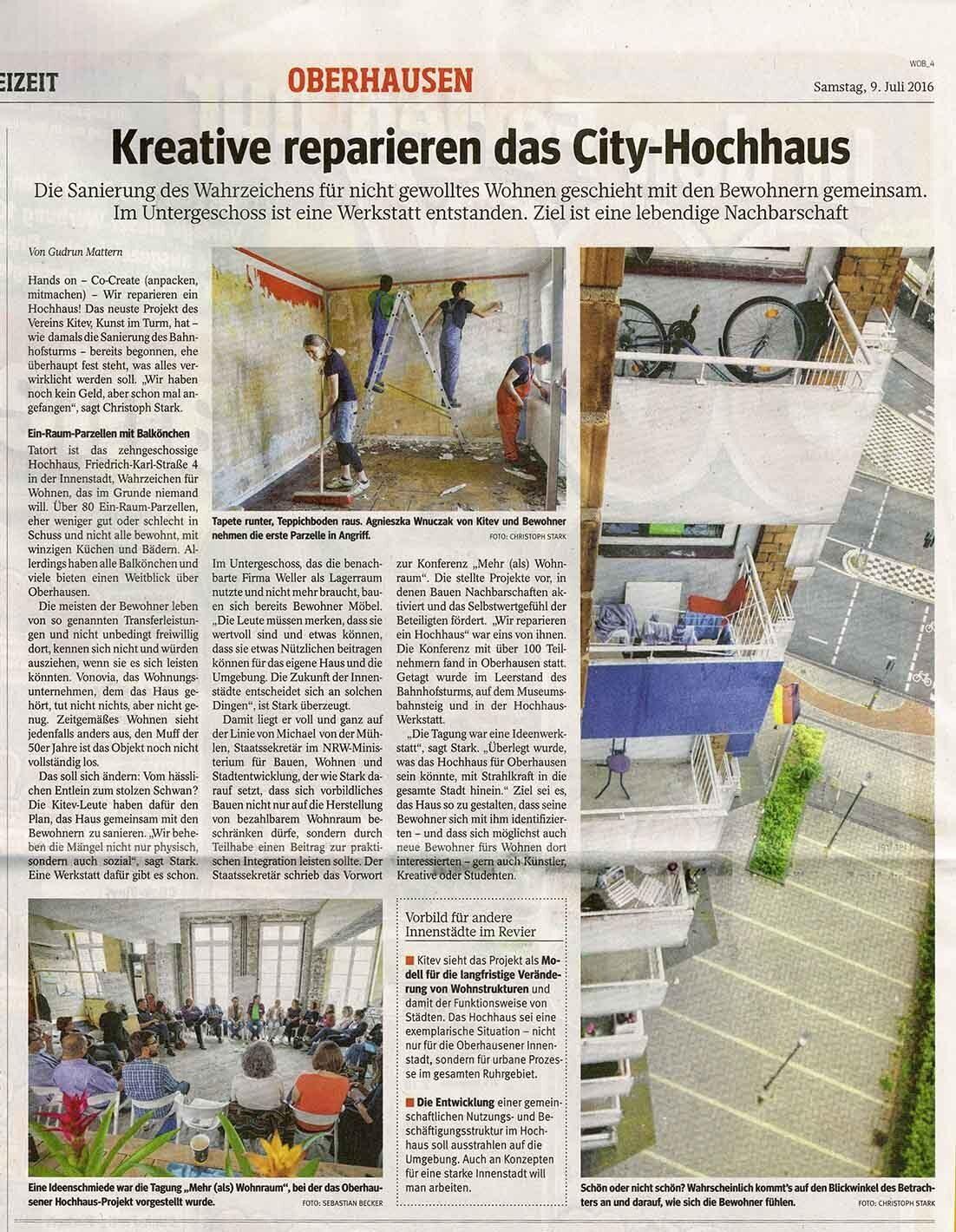
Hier geht's zum Online-Artikel im Der Westen - WAZ Artikel vom 9.7.2016
More [than] living space!
Building is teamwork! Building works best if it takes place as a common act. On a building site everyone must rely on each other. The one who builds, does changes. And the one who catches that spirit of change will become an active member in the society. These are thoughts that every participant of the one-day conference around the Oberhausen central station could probably agree upon: Following the slogan ”More than living space! – Building as an integration process of the socially disadvantaged people” gathered together around 100 architects, artists, urban planners and many others, invited by StadtBauKultur NRW and kitev, to discuss the future of housing and living.
In the past months something has become dramatically obvious: Germany has a problem. The issue of social housing has been far too long disregarded. In a time where the German economy and population are growing, but wage differentials and the constant residence permit status getting bigger in the same time. The need for affordable living space gets more and more in the center. And in fact cities and communities are reacting to it by supporting several housing programs.
In Oberhausen the question of How popped up. Is it enough to just provide living space or should living be a tool of self determination and creation of social processing? Five projects from Germany and Austria gave good examples of collaborative building projects which involve exchange, participation and long-run shift of social structures. Like integrative living projects including the contribution of students and homeless people in vienna or a cultural living-, gardening- and housingproject from Berlin, a planned meeting place made by children in the socially disadvandaged hood Garath in Düsseldorf, the creation of lively villages in empty industrial halls or even the vision of a completely self made city: here realized as envisioned future scenarios created possibilities of a society to come.
Workshops in the afternoon put an emphasis on the practical – and kitev even on a locally specific case. Under the title ”Hands on, Co-Create! We are reparing a highrise. Common building processes in practice” a labour place of ideas opened up its doors in a since short while reused and for a longs time empty store room on the foot of the highrise at Friedrich-Karl-Strasse. What function could this house gain for the city of Oberhausen as its charisma may reach potentially the whole city? How is it possible for this place to be a living organism, in which a heterogenous community is moving and developing together modells of a common living?
The workshop has set the public starting point of a long term project in the highrise, which has been started by kitev in cooperation with the owner Vonovia just some short time ago. In the store room already a workshop place is under construction. And Christoph Stark and Agnieszka Wnuczak have already begun to renovate one of the appartments, co-working with the young Mohammed Sayed Hashemi, as he’s gonna move in soon. As the two heads of kitev will as well: ”For us it’s crucial to become part of the structure here. We aim to build a modell for longterm changes in housing policies and so the ways in which cities function. The highrise works as a example situation – not just for the city center of Oberhausen, but for urban processes in the whole Ruhr area. The development of common usage and employment modells in the highrise may spread to its urban environment and build a workshop for future concepts of a strong city center which is not based anymore on a strong retail trade. This could work as a best-practice for a broader surrounding. So, the longterm project sees itself also in the tradition of historically active neighbourhoods on Oberhausen. The city has always been a flagship, talking about cooperative civic structures”, so says Christoph Stark.
With Uwe Weinand (Jobcenter Oberhausen), the theatremaker and founder of Freie Uni Oberhausen Stefan Schröer and the Finnish researcher Kaisa Schmidt-Thomé (Demos Helsinki) as invited guests and the program dramaturge Johanna-Yasirra Kluhs (Interkultur Ruhr) as moderator, the parttakers of the workshop created scenarios of the house, which revealed new realities. All propositions had one belief in common: we have to do it together. Visions have to be developed in strong dialogue with actual and future inhabitants. As many people as possible should be actively involved in planning and renovation activities. And so it might be possible to create a new narrative and history of the building and thus the city center. As the participants were agreeing on this as well: a purposeful changed gaze on the situation as it is, is already creating a different reality. And so the participant Ramash Imanifardazar was proposing to start with a big neon sign on the rooftop, saying as follows: Oberhausen needs you. And we are sure, she was not just talking about the building itself.
pictures by Rene Jankowski and Sebastian Becker
Hier kommt der Reader dazu.
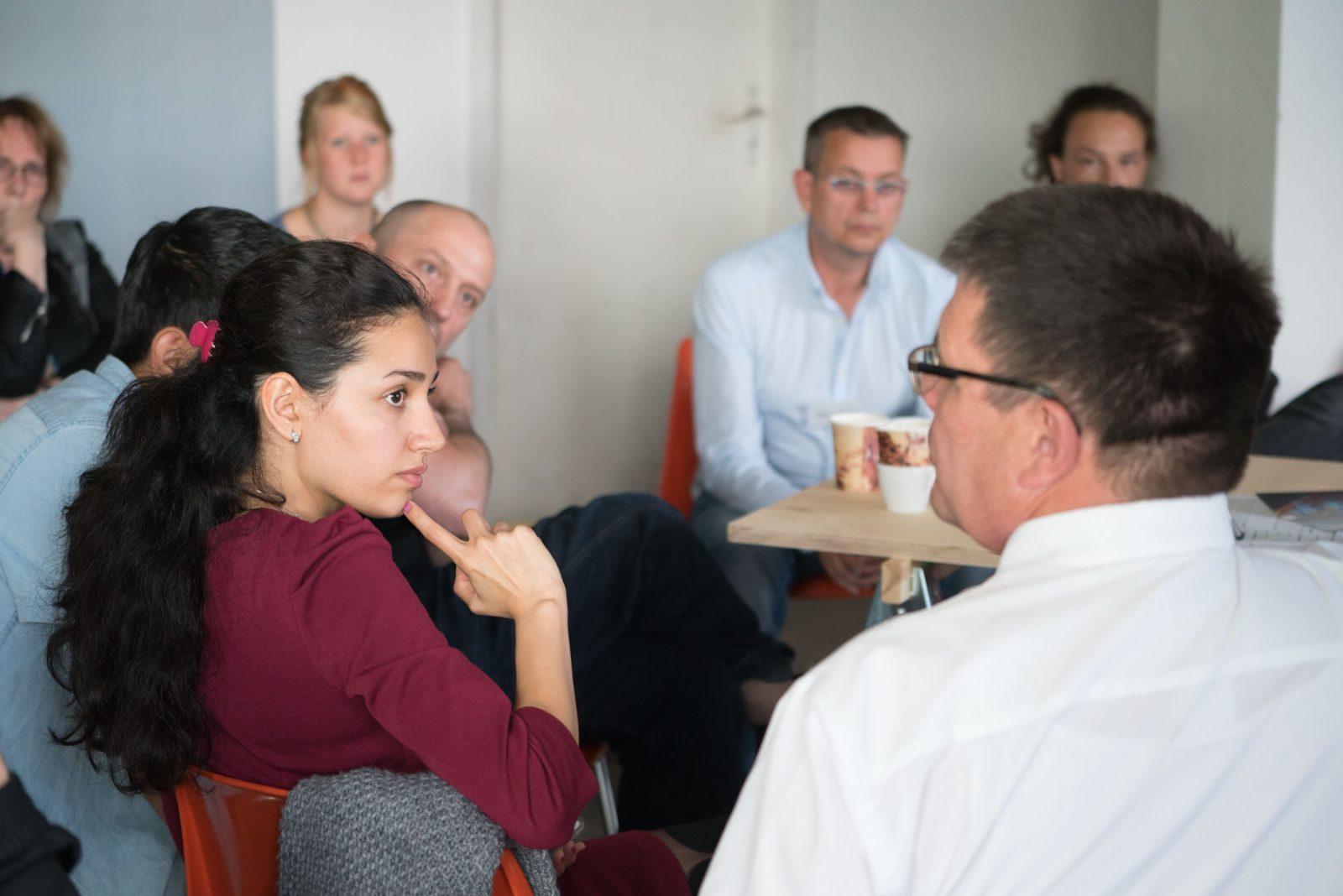

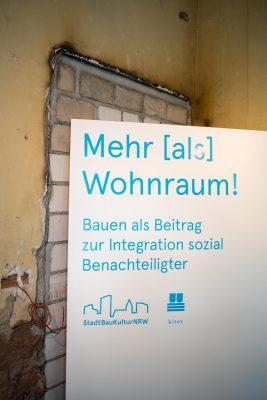

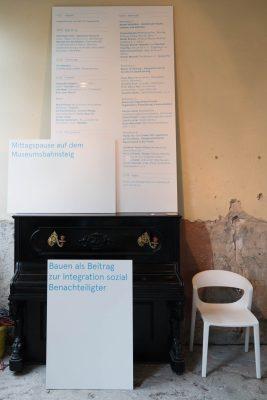







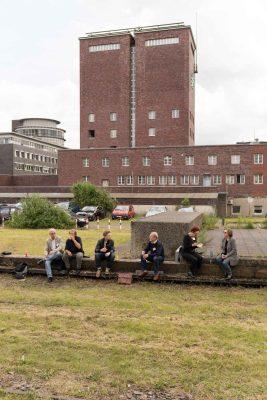
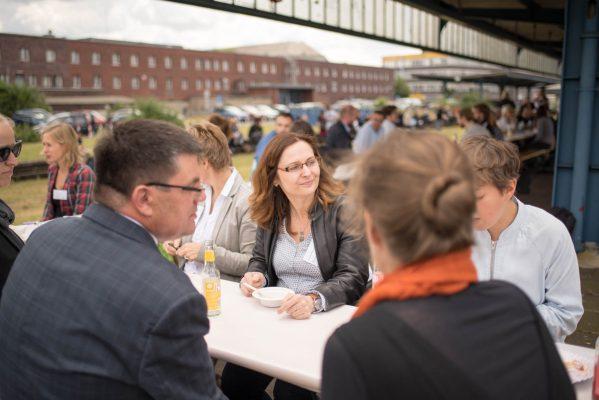
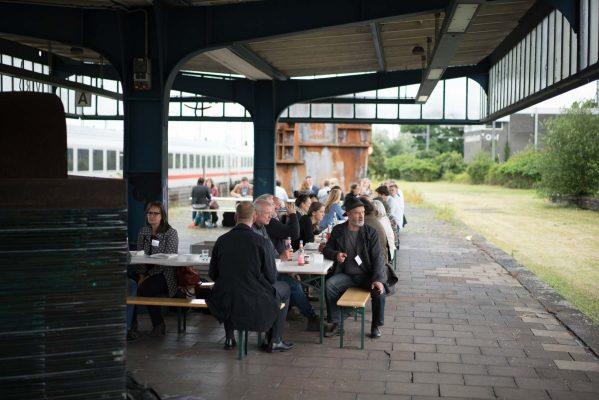
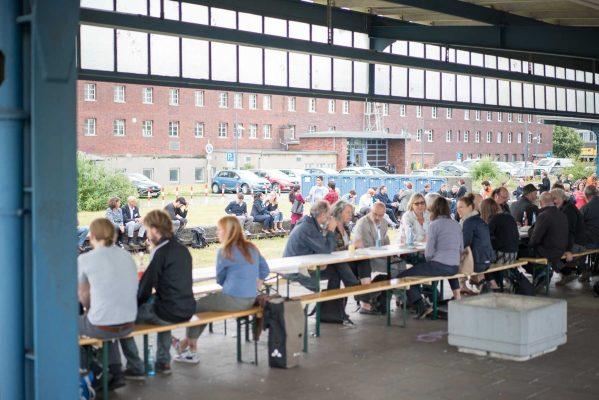
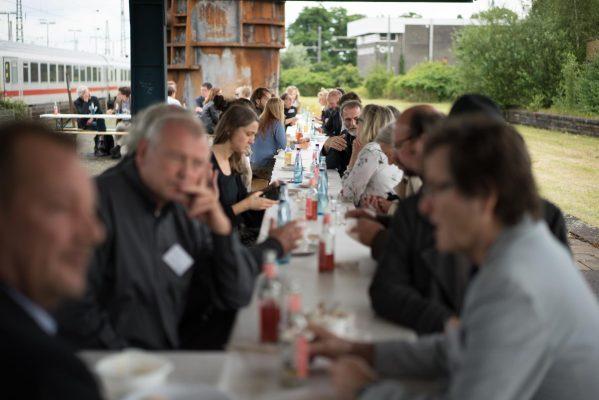
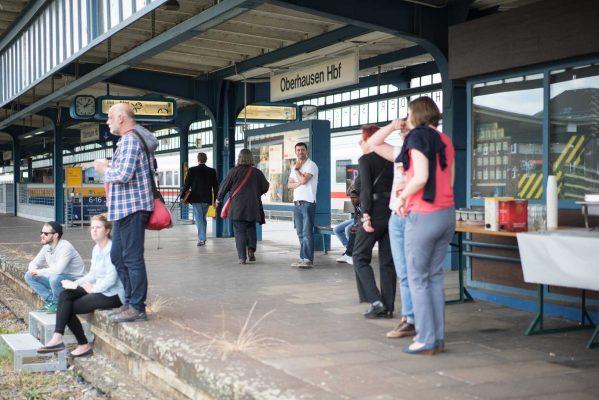
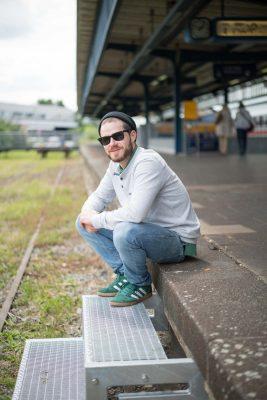




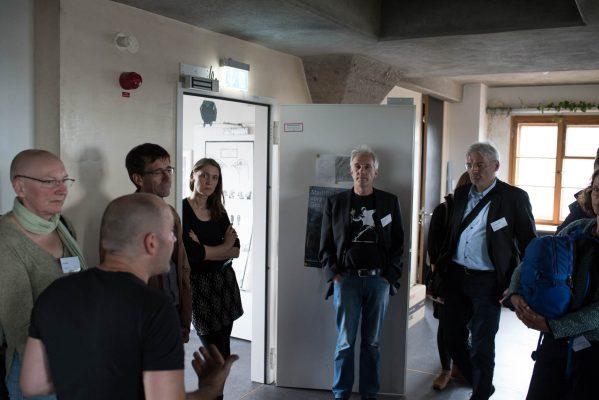
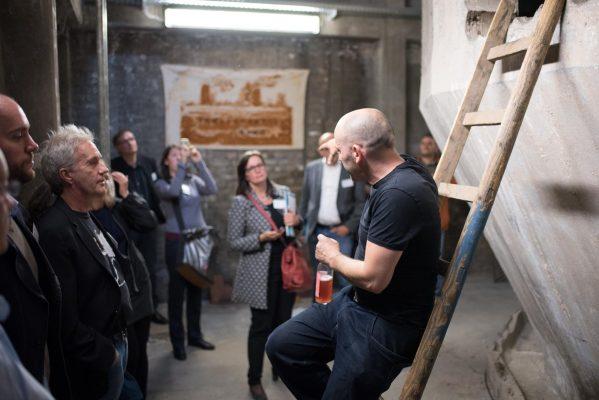
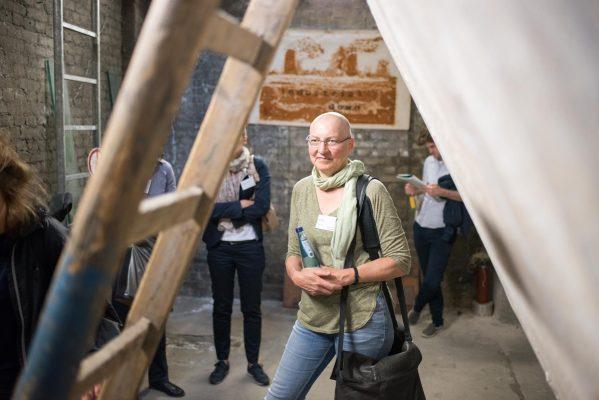

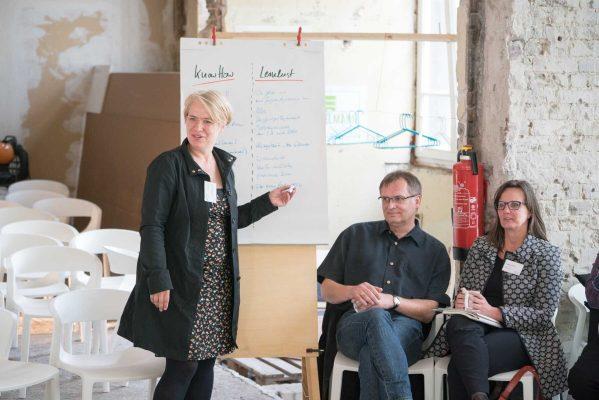
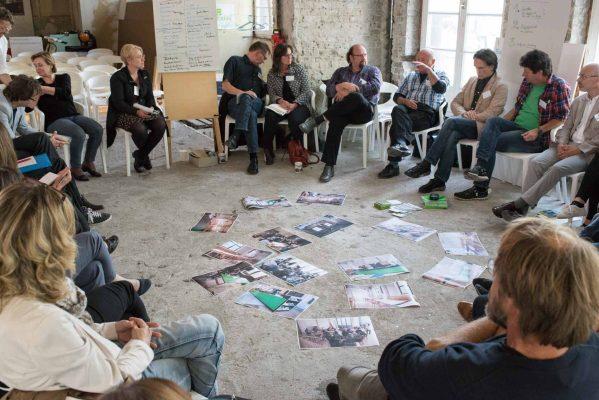
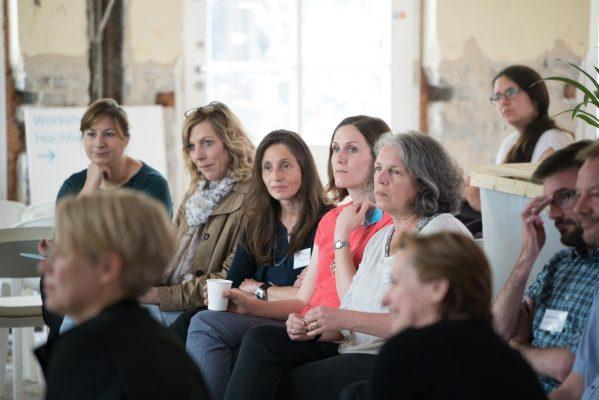
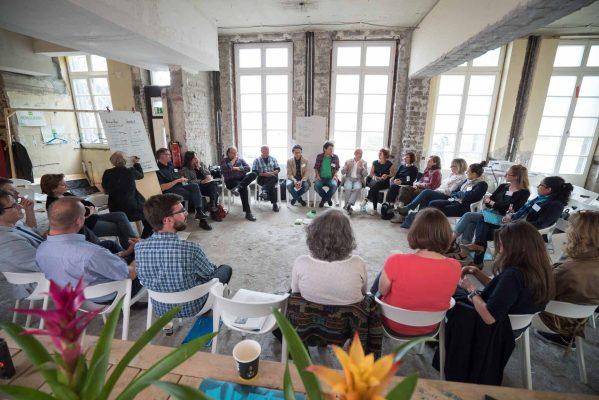
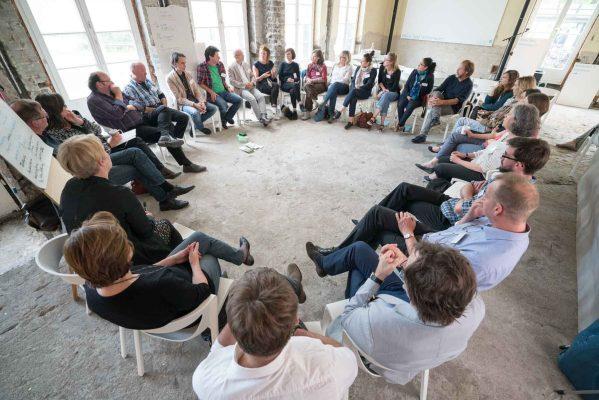
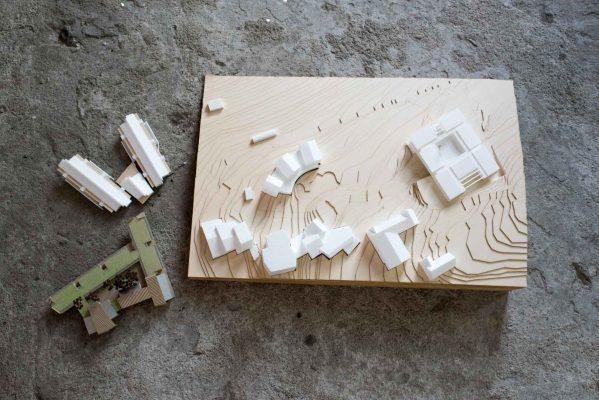

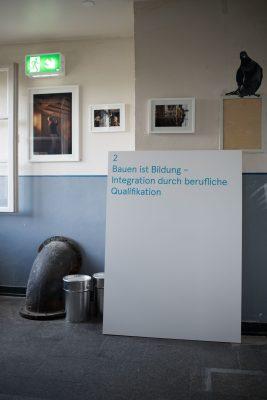
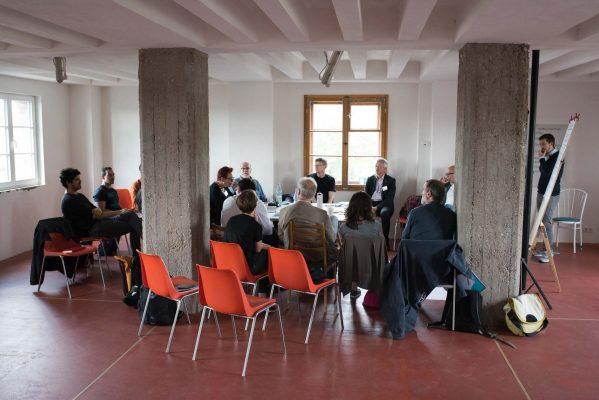
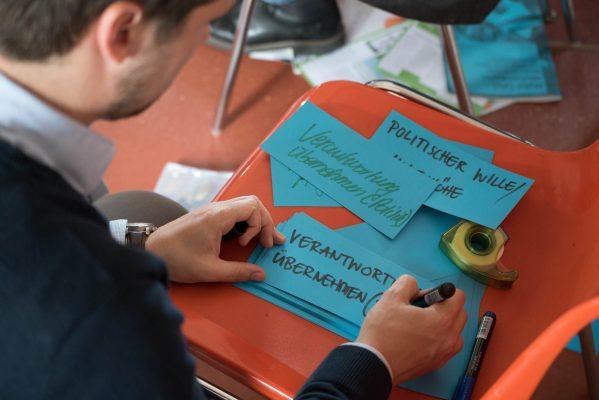
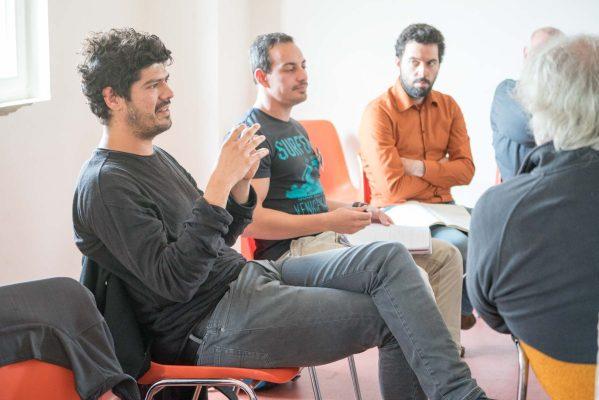

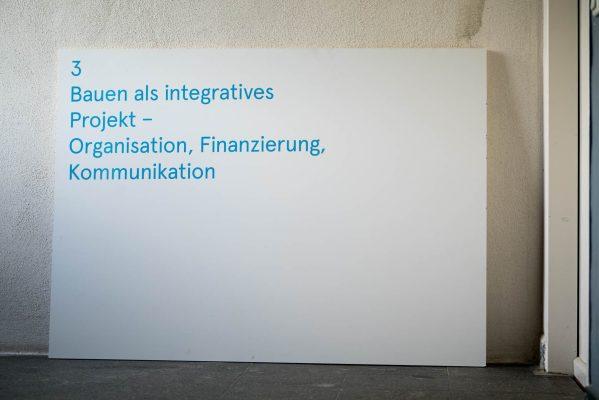
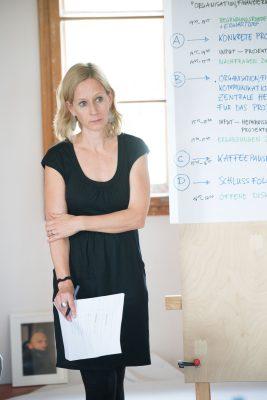
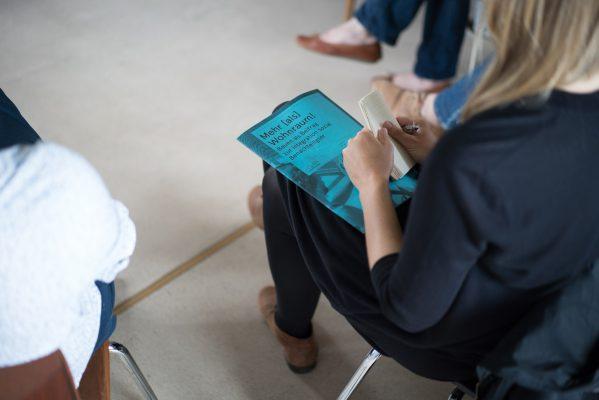
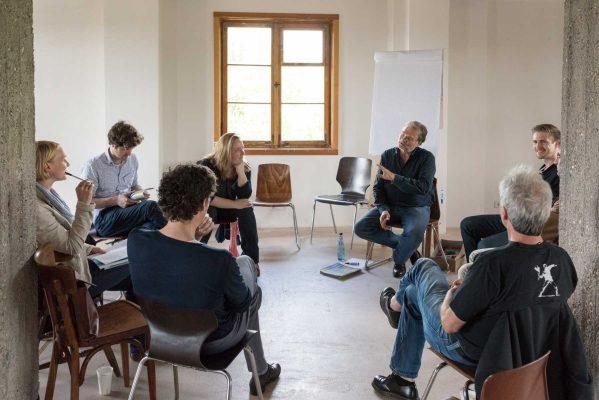

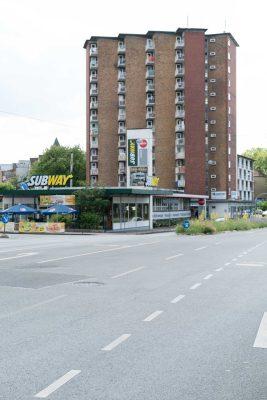
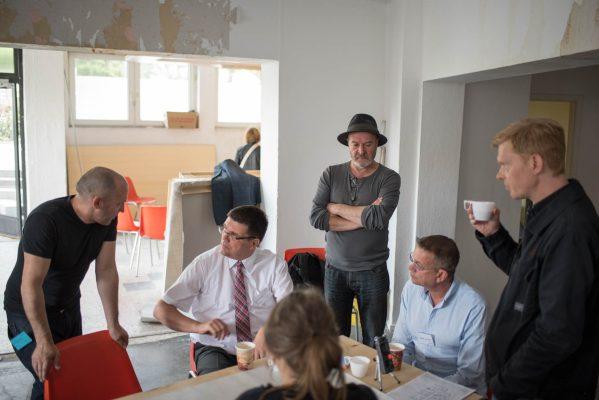
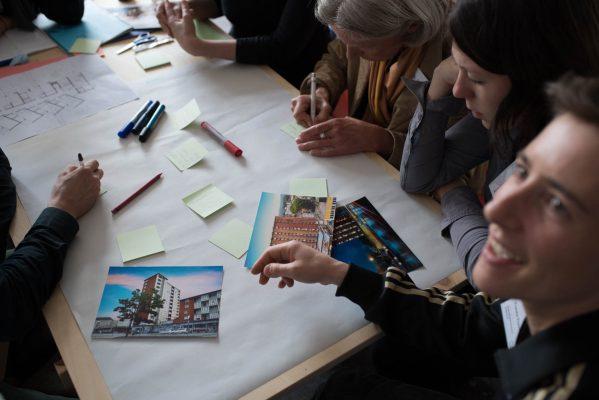
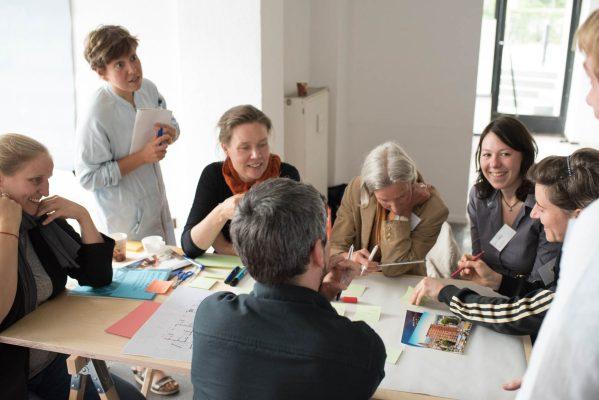
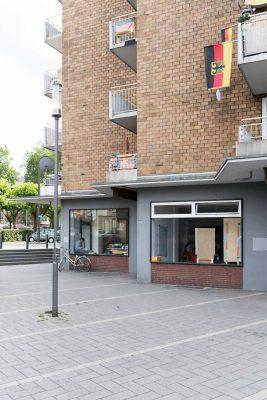
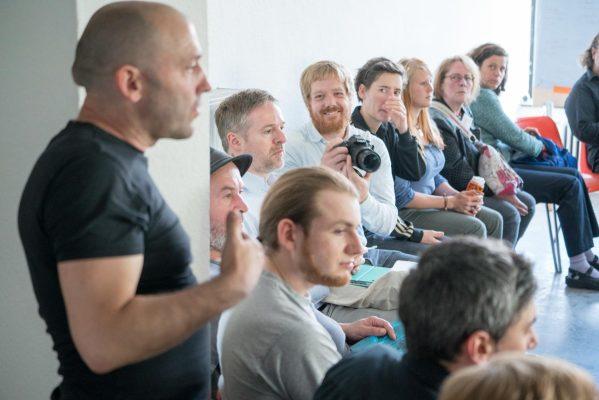
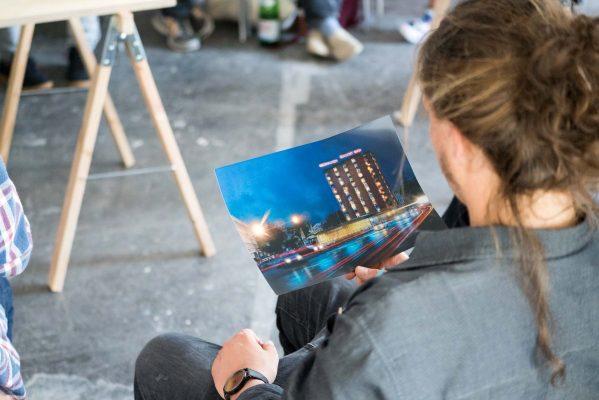
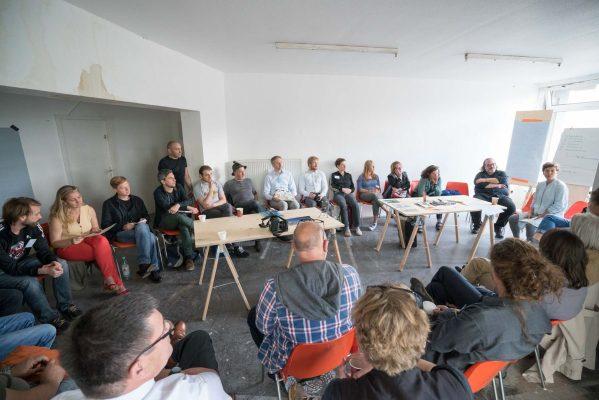
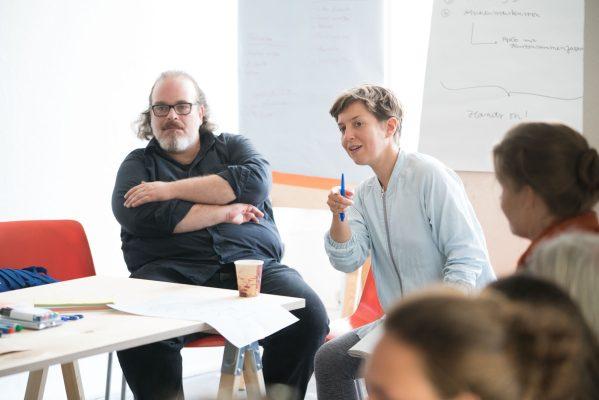
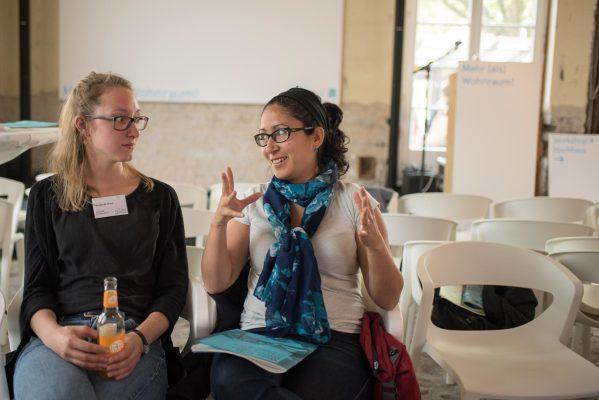
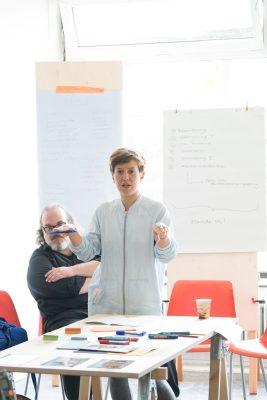
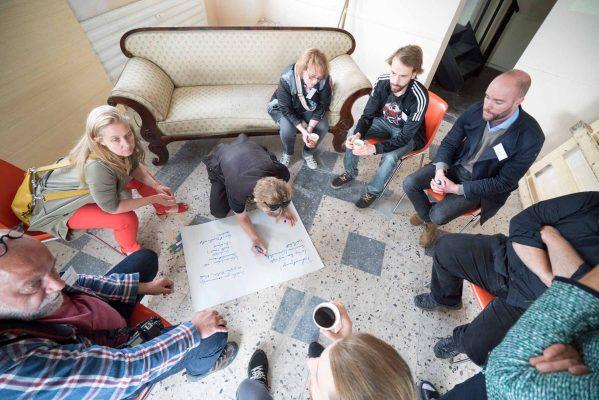
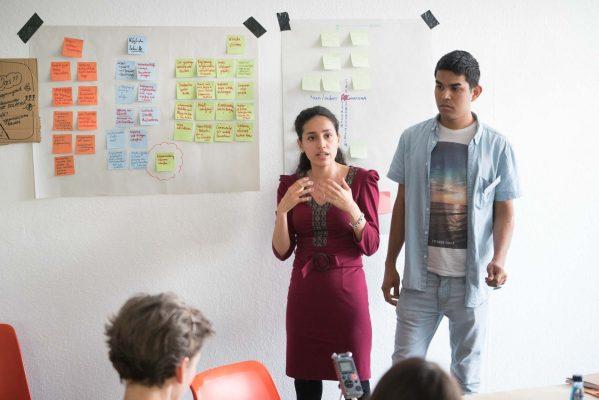
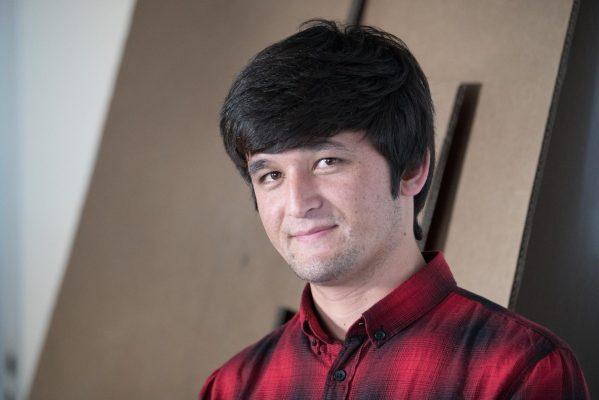
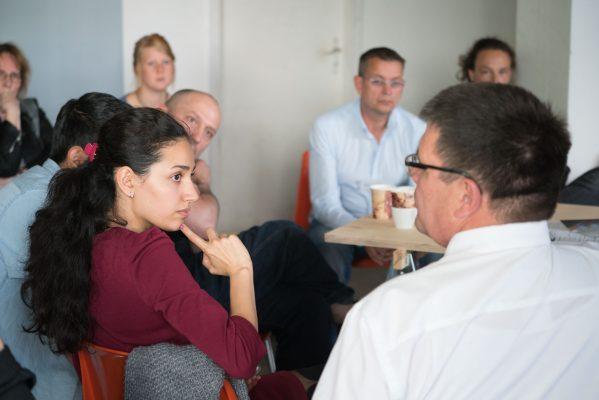
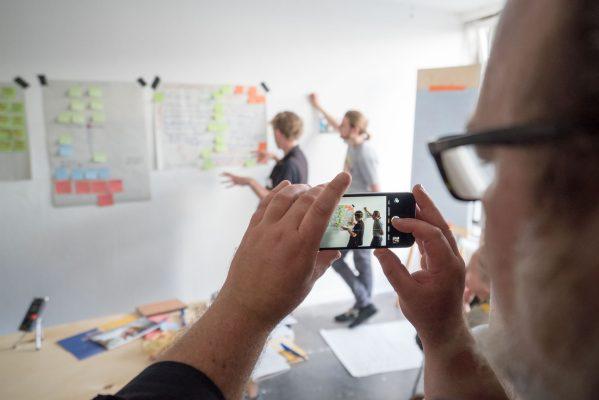
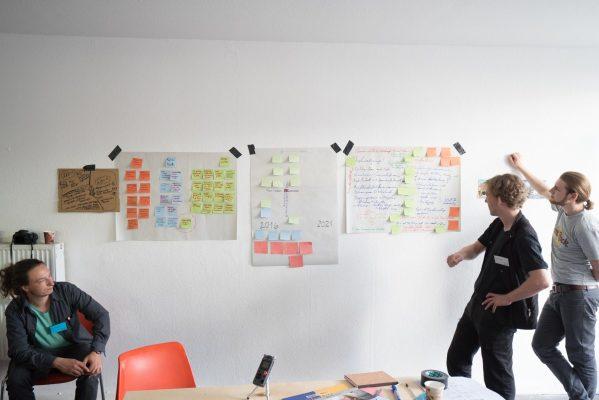
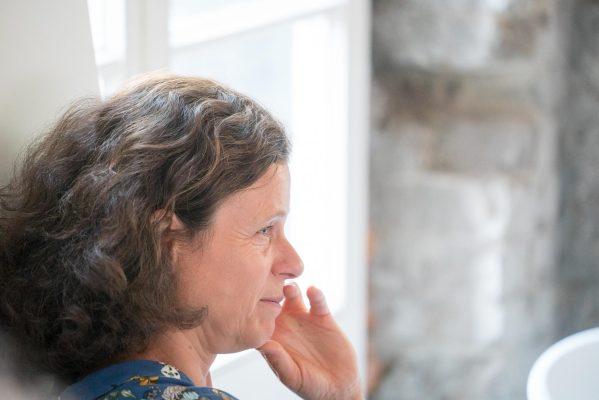
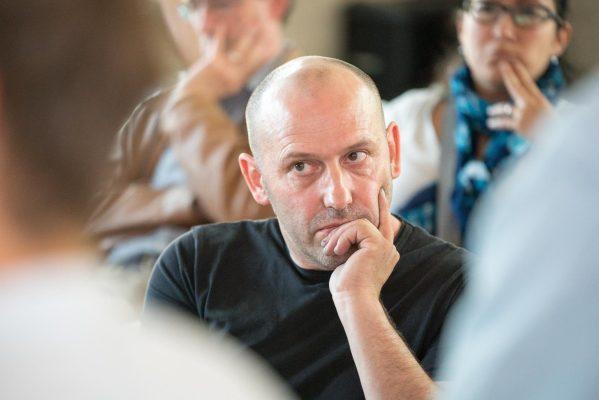



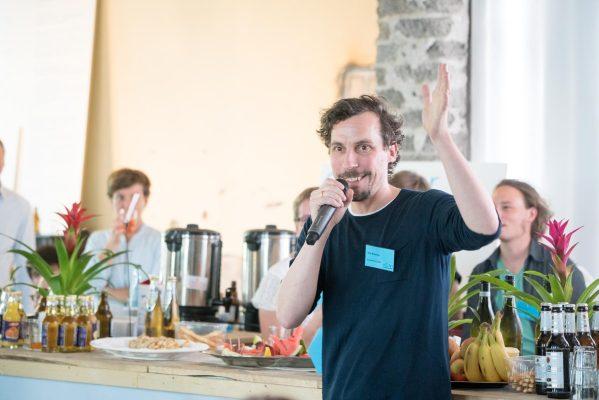


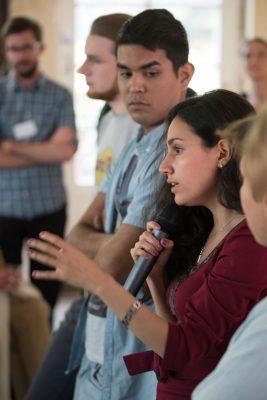
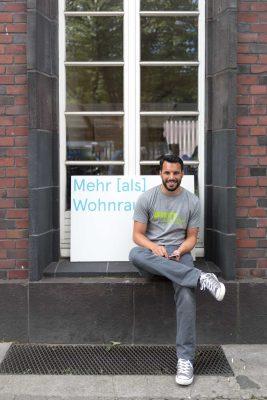
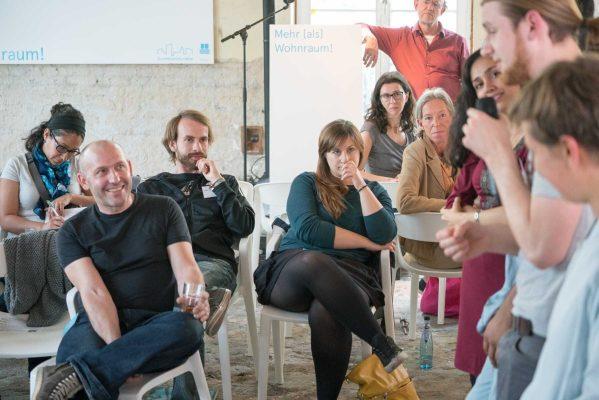
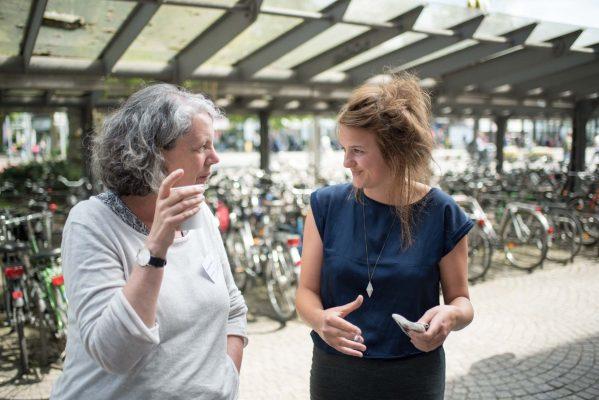
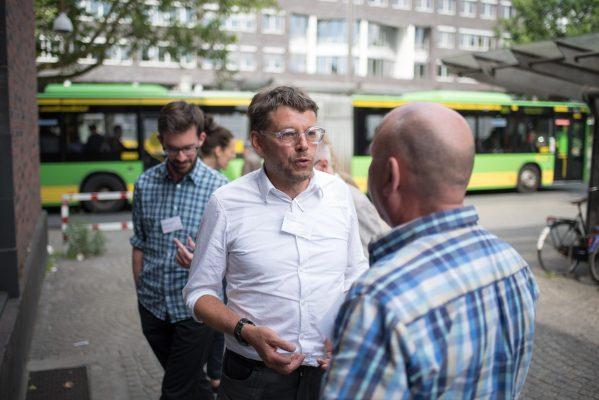
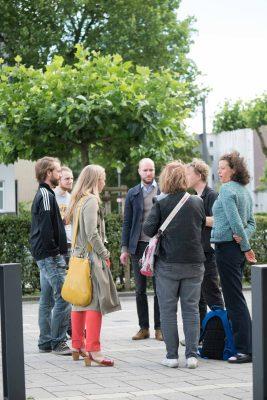
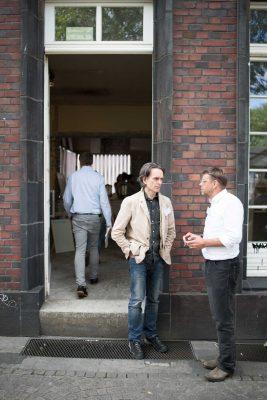
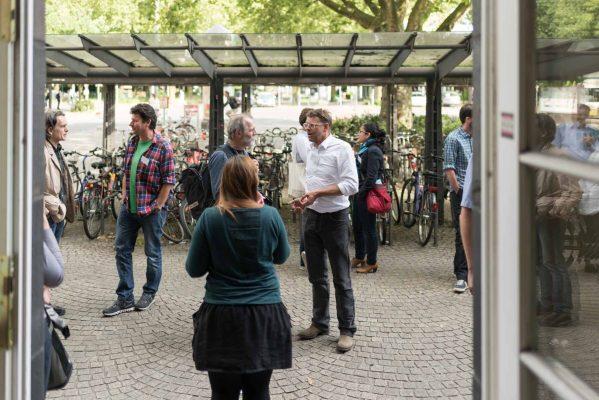
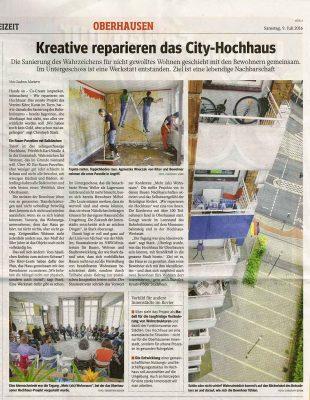
Folgend: TURMBLOG-Beiträge zu diesem Projekt.
Following: TURMBLOG posts related to this projekt.